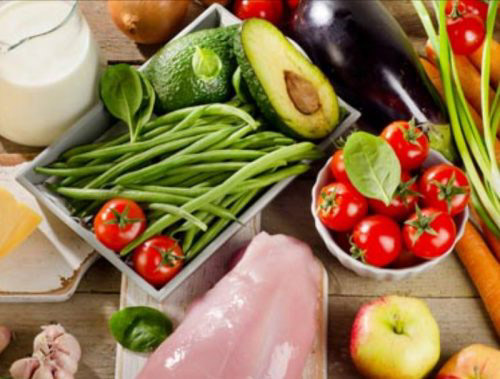10 myths about your diet
25th January 2019

This time of year many of us decide it’s time for a change amongst the most popular… weight loss or leading a healthier lifestyle. Here we offer you 10 myths about your diet.
The media bombards us with information about what to eat, when to eat, how much we should eat, how many times a day, so called bad foods, so called good foods; the list is endless, not to mention confusing.
We thought it might be helpful to provide some science based clarity on the 10 most popular dietary myths, … here goes.
- Smaller frequent meals increases overall calorie burn: This is a myth, however what may happen is a smaller portion of food maybe surprisingly satisfying and lead to eating less food over the course of the day.
- Low fat or no fat diets are good for you: Fat is the bodies preferred fuel for energy, although it is high in calories at 9 calories per gram. However everyone needs to eat fat for energy, tissue repair and transportation of vitamins A, D, E and K around the body.
- All calories are created equal, it doesn’t matter where they come from: Actually this isn’t a true statement as different nutrients have differing metabolic pathways, they have different affects on hormones, hunger. For example, consuming calories from protein, generally decreases hunger for longer periods of time than consuming the same amount of calories from carbohydrates especially simple carbohydrates.
- Crash dieting is a good way to lose weight, this maybe true in the short term, people on shake diets or very low calorie diets do lose weight quickly. However there will undoubtedly be a drop in lean muscle mass which causes a fall in metabolic rate. (The speed in which calories are burnt in the body). The lower rate of calorie burn will then mean that you need less calories than you previously did, making it more likely that you gain weight.
- Food eaten late at night will be burnt off at a slower rate than the same amount of food eaten during the day. Tests were carried out at the Dunn Nutrition Centre in Cambridge using a whole body calorimeter, which measures calories burned and stored. Results revealed that the large meal eaten late at night did not make the body store more fat. Its not when you eat thats important but the total calorie consumption within a 24 hour period.
- Fattening food causes rapid weight gain… this belief is not exact, the truth is weight gain is a slow process, you need an extra 3500 calories to gain 1 pound of body fat and vice versa for losing it. If the scales say you have gained weight after a rich meal out, its largely due to fluid, which will rectify itself. As long as you don’t continue to only eat highly calorific foods . Long term weight control is best achieved balancing high fat foods with healthy foods and activity.
- Banana’s, many people believe they are fattening, fact is they are only 95 calories and 0.5g of fat; they are also packed with potassium.
- Losing weight is a linear process, this isn’t true because normal weight fluctuates up and down, generally due to fluid, especially in women. True weight loss is a slow process, the important thing is to ensure your diet is balanced and integrate regular activity and physical calorie burn into your lifestyle.
- Supplements can help you lose weight: There are numerous supplements out there that claim to have a dramatic effect on weight loss, however once studied in detail, they are proven to have little or no effect.
- Body fat is simply stored calories, to lose fat, more calories need to be expended than taken in. Simple maths 100 calories taken in and 100 calories expended = no fat stored; 80 calories taken in and 100 calories expended = 20 calorie deficit; however 120 calorie intake and only 100 calorie burn results in 20 calories stored as fat.
Getting the right information about your wellbeing is important, visit us at Fit Friends and see how we can help you and your wellbeing. Integrate more activity into your lifestyle, get your head straight, eat a balanced diet.
www.fitfriends.training
01509 437765
